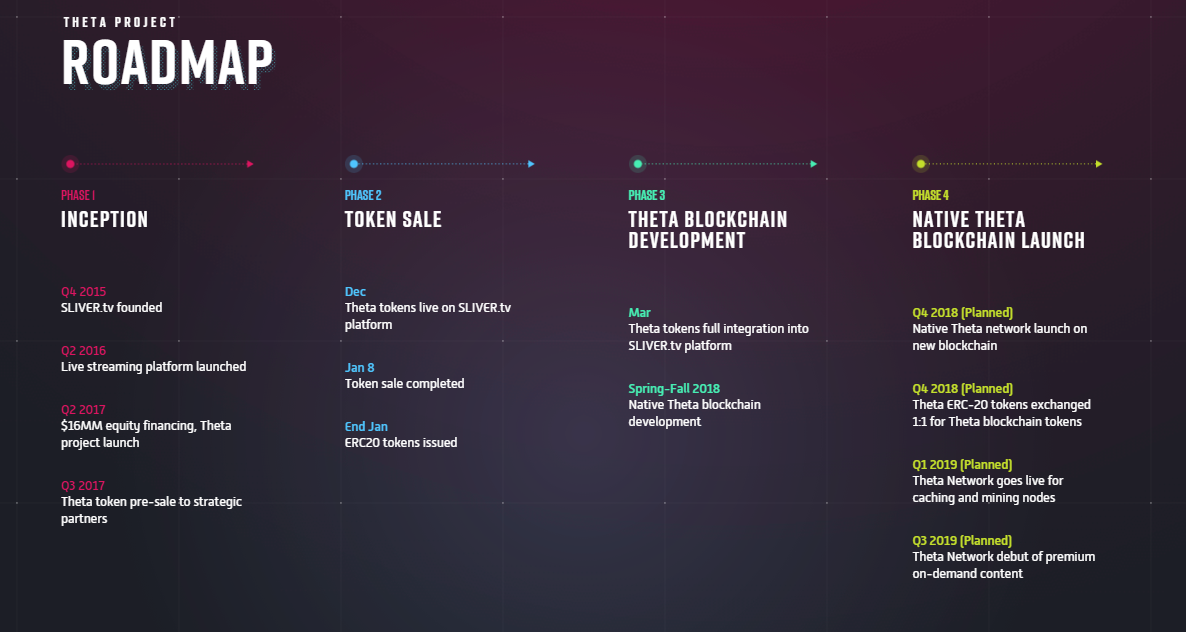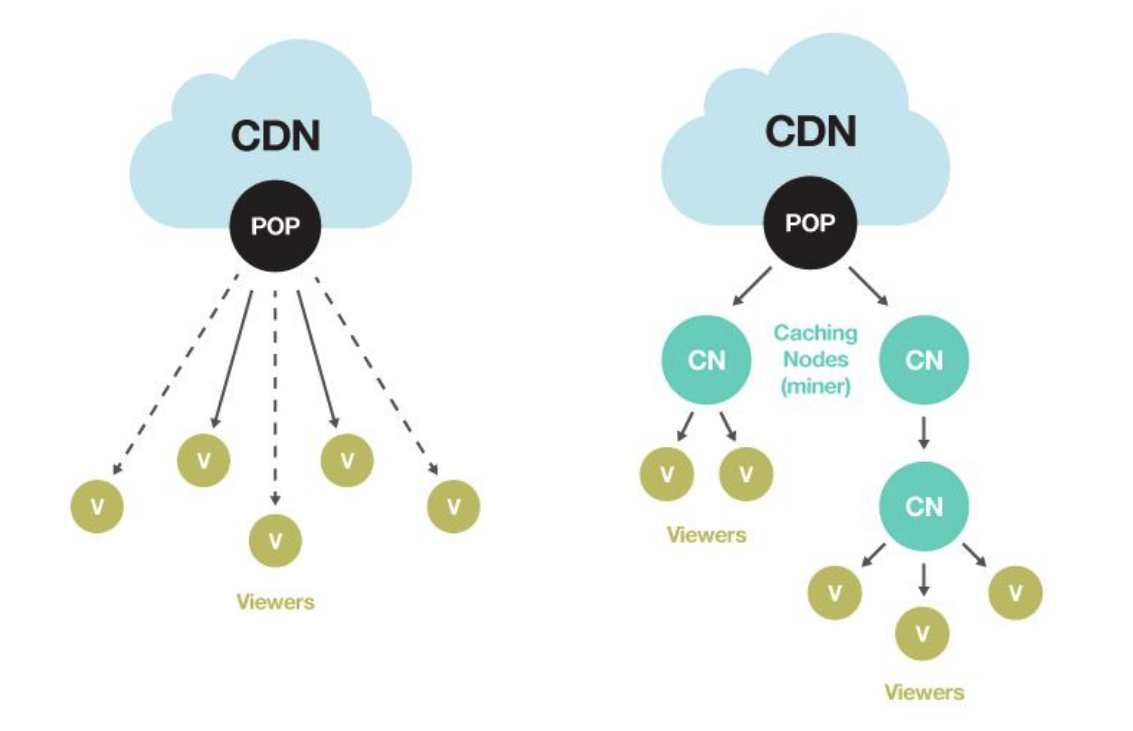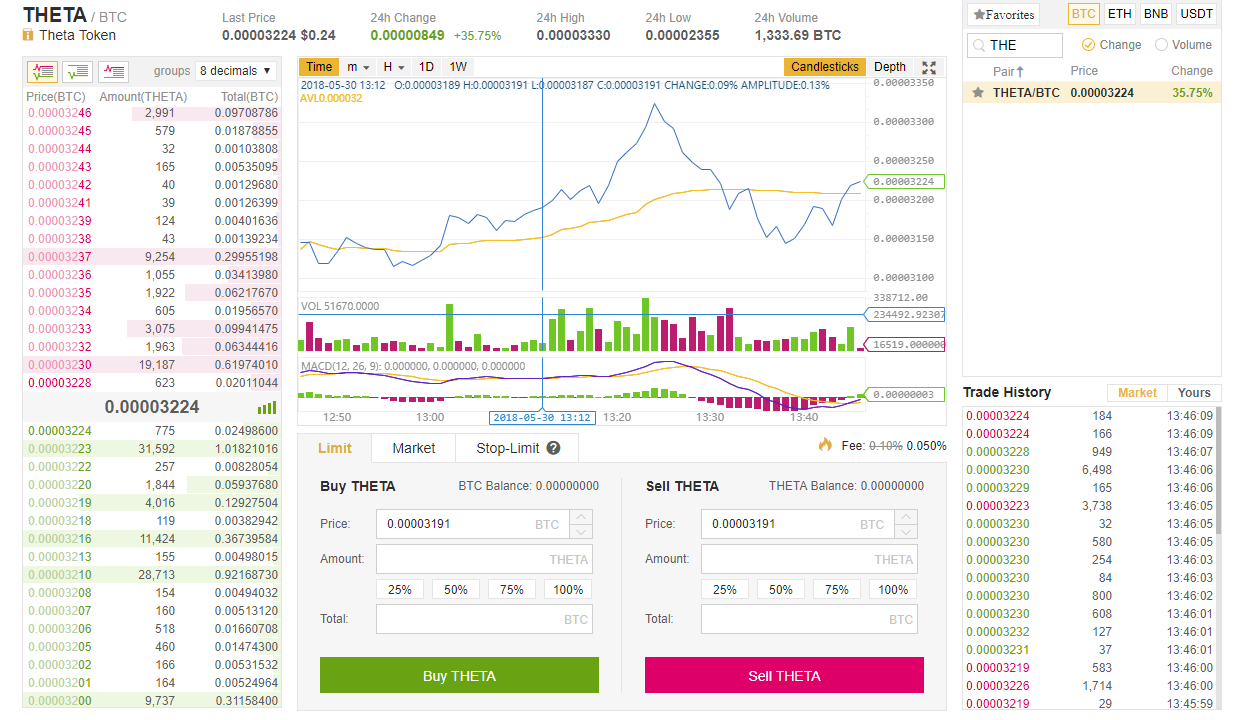Theta Token (THETA) Review – The World’s First Decentralized Video Streaming Network
| Coin Name | Theta Token |
| Coin Ticker | THETA |
| Token Type | ERC20 |
| Total Supply | 1,000,000,000 |
| ICO Price | $0.15 |
| Website URL | https://www.thetatoken.org/ |
| White Paper URL | https://whitepaperdatabase.com/theta-token-theta-whitepaper/ |
Theta Token’s mission is to provide decentralized live video streaming and video on demand powered by users and using the blockchain technology. The end goal is to provide high quality, smooth video streaming while at the same time reduce the cost of delivering video streams. In exchange for sharing bandwidth and resources, viewers will earn Theta tokens and share them with the network.
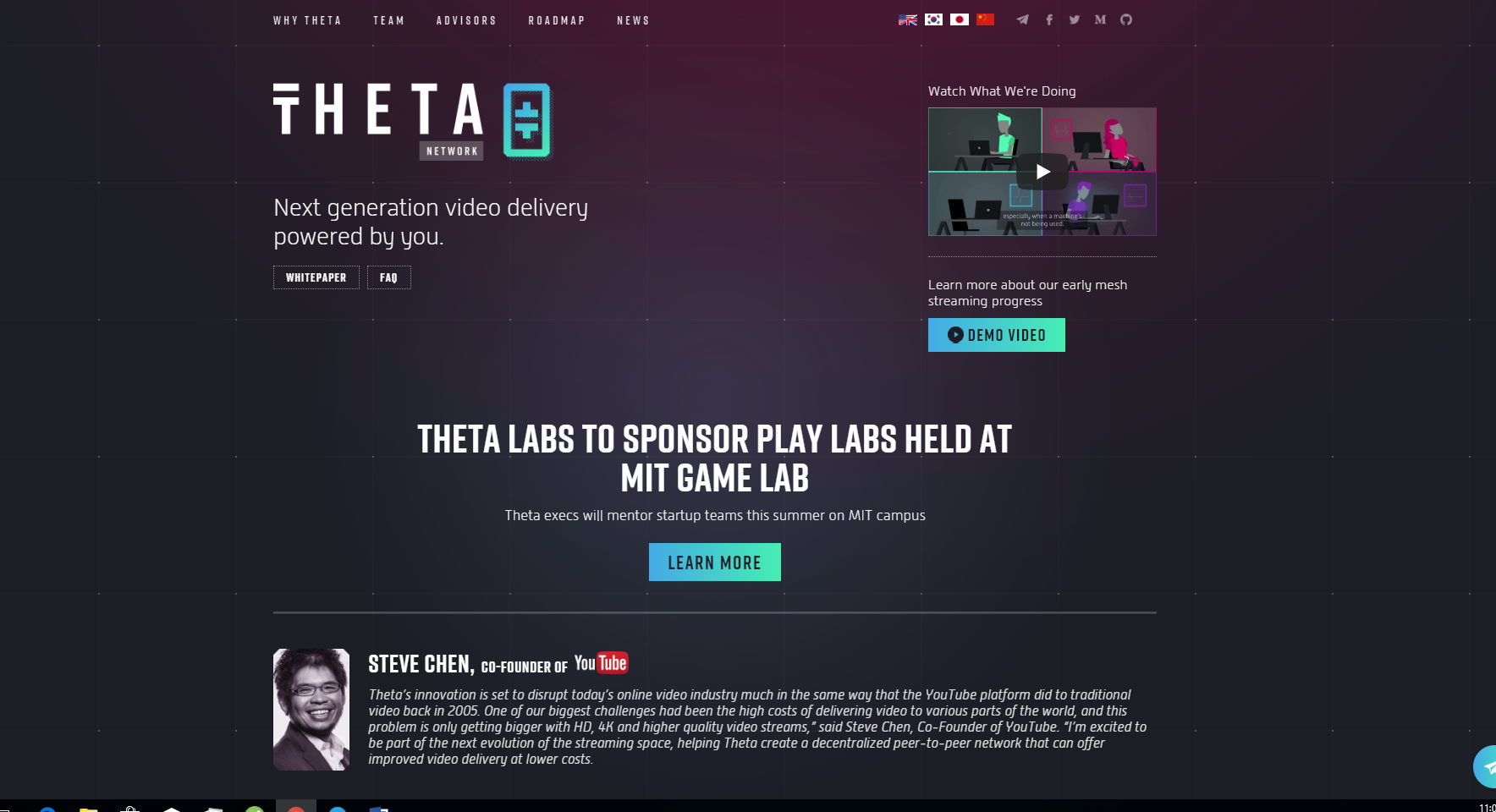
The Idea and the Team Behind Theta Token
With the top five video streaming players in the US being Facebook, Google/YouTube, Twitter, Live.ly and Twitch, there is an overwhelming demand for video streaming. Cisco reports that states that live video streaming accounts for over two-thirds of all internet traffic today and is expected to jump to 82% by 2020.
However, many video streams suffer from something that is called the “last-mile” delivery problem. Content Deliver Networks, the technology that provides the backbone infrastructure to deliver video streams to end viewers, generally build datacenters which are known as Point-of-Presences (POPs) all over the world. The idea is that each serves an audience closest to their geographic proximity. This is not always the case though, especially in less economically developed regions. As a result, users have bad user experiences, with choppy streams and frequent rebuffering.
Theta’s decentralized caching nodes
Theta Token’s solution is to leverage the decentralized blockchain structure to create the world’s first Decentralized Streaming Network (DSN). In the DSN, viewers receive incentives to share redundant memory and bandwidth with others. Their computers can service as “caching nodes,” forming a video delivery infrastructure to viewers anywhere around the world.
The team is headed by co-founder and CEO Mitch Liu, previously the cofounder of SLIVER.tv, Gameview Studios and Tapjoy. He holds a bachelors in computer science from MIT and an MBA from Stanford. A second co-founder and CTO is Jieyi Long, also previously the co-founder of SLIVER.tv. He holds a bachelors in microelectronics from Peking University and a PhD is computer engineering from Northwestern University. SLIVER.tv is a leading e-sports streaming platform that has led the way in next-generation video streaming technologies for VR and has been instrumental in the founding of Theta Token.
“At its core, Theta is enabling users to share their idle bandwidth and computing resources to mine Theta tokens and in turn cache and relay video streams to others in the network,” Mitch Liu, cofounder and CEO at Theta Labs, told VentureBeat. “This is only possible by building on decentralized blockchain technology.”
Theta Token Partnerships
Theta Token has a number of strategic partnerships, including one with Twitch, in which viewers can earn Theta Tokens by sharing their bandwidth to broadcast video streams.
It also has entered into a long-term strategic partnership with Aelf, a decentralized cloud computing blockchain network and Play Labs, a startup accelerator which will be held at the MIT Game Lab on the MIT campus this summer.

Theta Token Price History
Theta raised $12 million in a token pre-sale at the end of the year.
After the token was sold for an ICO price of $0.15, it doubled in value to $0.31 by the end of January.
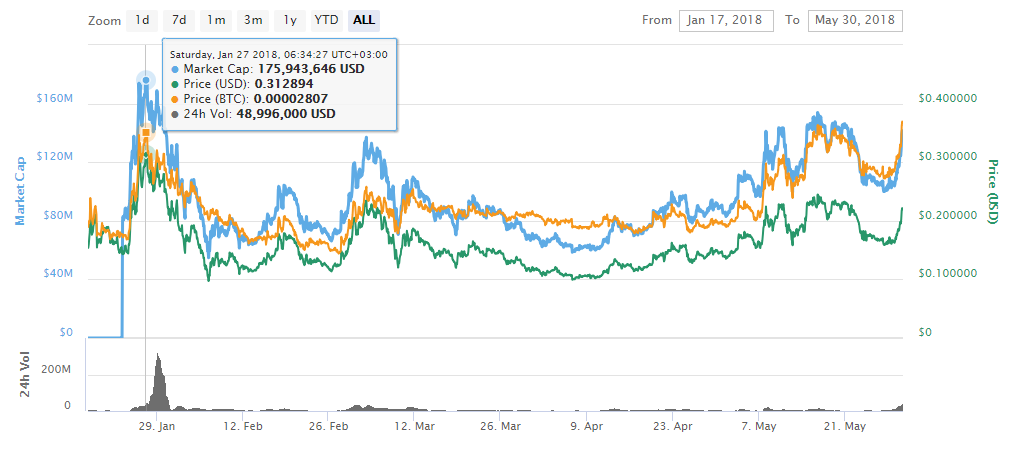
The Theta Token Technology
The foundation of the Theta blockchain is the Proof of Stake (PoS) consensus mechanism. In contrast to Proof of Work mechanisms, which mandate hashing computations, PoS has lower computation costs and higher transaction throughput. Since the roles of validator and cacher are separate, neither has to perform extra computations like in a PoW scenario, which means that many different devices can operate as caching nodes and viewers.
Since scalability is a huge challenge in blockchain and in video streaming specifically, Theta Token has developed a Resource Oriented Micropayment Pool as a solution to answer this need. Another concept has been developed to track the delivery of the video segments to end views – Proof-of-Engagement (PoE). Implementation of collecting and distributing rewards is done through Smart Streaming Contracts.
Resource-Oriented Micropayment Pool
Built for video streaming, the resource-oriented micropayment pool allows a user to create off-chain micropayment pools that other users can withdraw from using off-chain transactions. These off-chain transactions are double-spend resistant and offer more flexibility that other off-chain channels. Double spending detection is done by the validators of the Theta Network. For example, it allows viewers to pay for video content from multiple caching nodes without on-chain transactions.
The major advantage of the resource-oriented micropayment pool is that it offers greater scalability than blockchains that offer on-chain payments.
Proof-of-Engagement
This is the method that proves that viewers have watched the live video. It provides transparency to advertisers and a way for viewers to earn Theta tokens in return for their engagement. PoE provides benefits to viewers and advertisers since it enables them a reliable measurement of video stream delivery.
Smart Streaming Contracts
In addition, Theta Token’s blockchain supports smart streaming contracts, or incentive contracts, which can help facilitate reward collection.
There are a number of ways in which incentive contracts can be used, including:
- Advertisers rewarding viewers and streamers
- Viewers can gift rewards to other parts of the streaming chain
- Gift contracts for multiple streamers
- Paid/Premium video content
- Subscriptions and Decentralized Entertainment Networks (DEN)
- Cachers can share rewards with viewers and content streamers
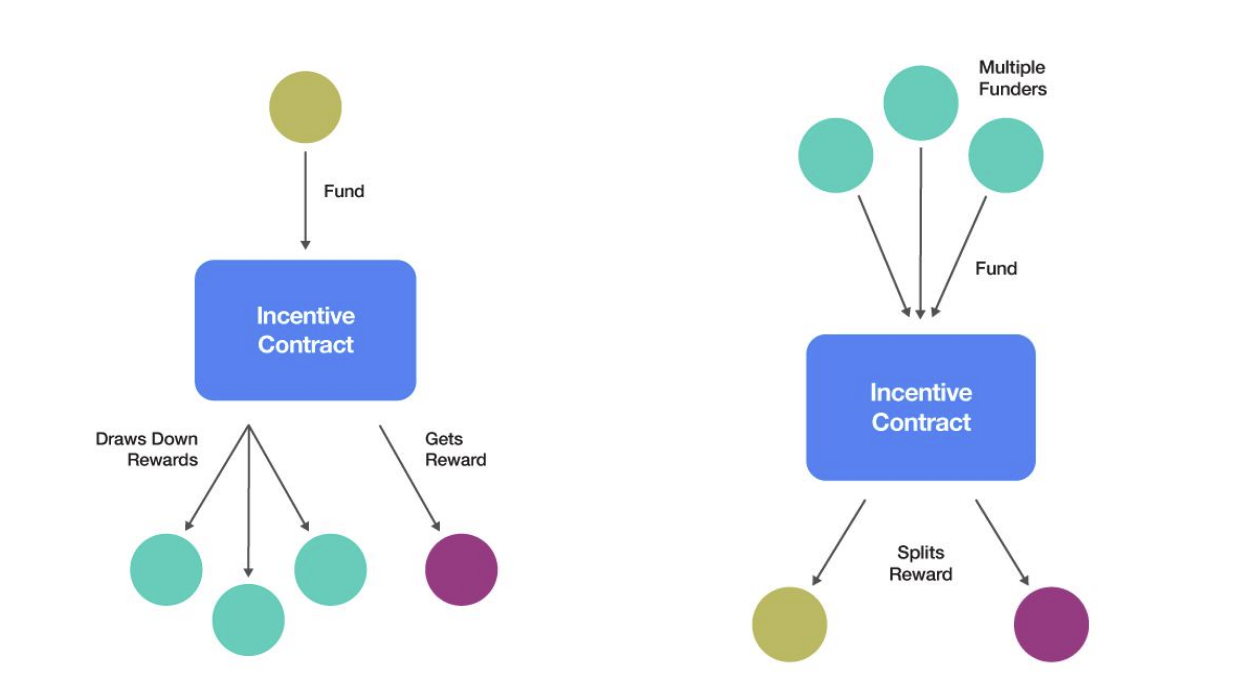
Smart contracts are executed by the validators, so original funders of the incentive contract need not be involved.
The Theta Token Network
Theta’s tokens were launched in December of last year as ERC20 tokens, which will be exchangeable at a 1:1 ratio once the new blockchain launches at the end of 2018. The tokens are already part of the SLIVER.tv platform. They are meant to be used to reward viewers and those who share their bandwidth and resources with the Theta network.
There are 5 major stakeholders in the Theta Token network:
- Caching nodes – These nodes provide caching services to improve video stream delivery. They are rewarded for this service with Theta tokens.
- Viewers – The end consumers of video content who provide viewer attention, the most important asset in the video streaming ecosystem. Viewers can choose to be rewarded for their engagement with the video stream and with advertisements.
- Ingest nodes – These nodes assist in generating various steam resolutions, bitrates, etc. They receive rewards for providing the ingest service for live streams to the caching nodes.
- Influencers/streaming sites – Also known as streamers or content creators, they produce live video content and video on demand, depending on the context. They are rewarded with Theta tokens for content production.
- Advertisers – Advertisers promote products and service to the end viewers. They do this by spending Theta tokens as part of their advertising budget to sponsor influencers and video streams through various video formats.
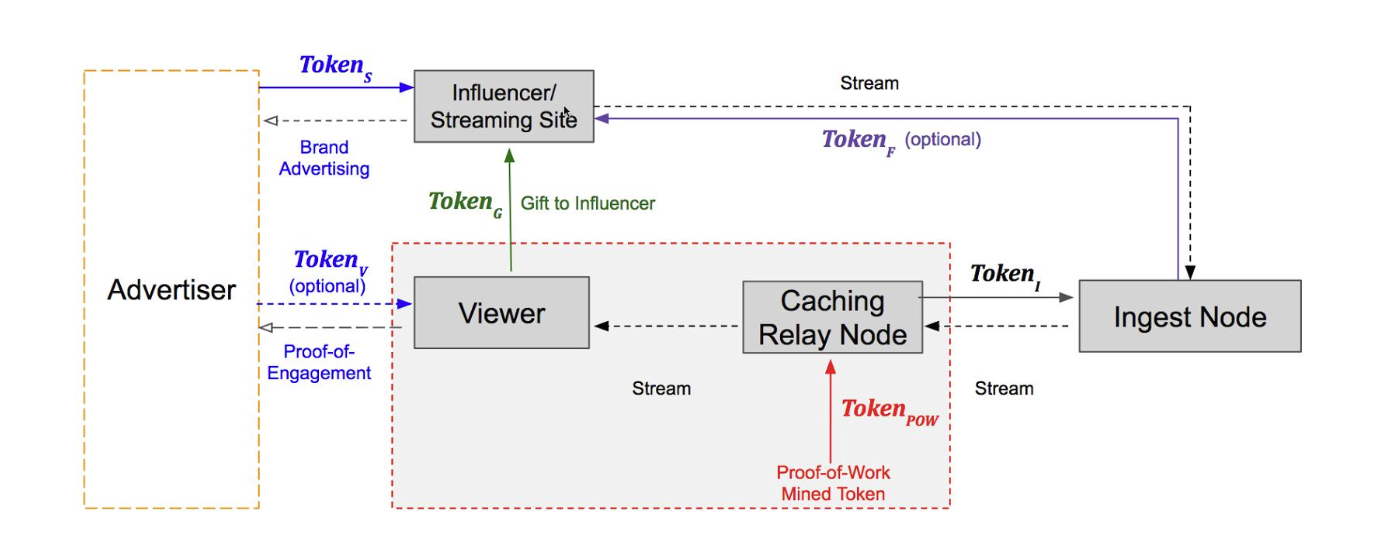
How to Purchase THETA
The main way to purchase THETA is through Binance. Binance recently listed THETA on their exchange and it currently allows you to exchange THETA with BTC, ETH and BNB.
THETA is also available on the following exchanges:
- Huobi (Trade THETA with USDT on Huobi)
- Huobi (Trade THETA with BTC on Huobi)
- Huobi (Trade THETA with ETH on Huobi)
- OKEx (Trade THETA with USDT on OKEx)
- OKEx (Trade THETA with BTC on OKEx)
How to Store THETA
THETA can be stored in any wallet that supports ERC-20 tokens such as Coinomi, MetaMask and Myetherwallet.
For maximum security, however, you should store your THETA on hardware wallets such as Ledger Nano S and Trezor.
Roadmap and Future Updates
Theta Token has come a long way since the launch of its live streaming platform in 2016. Theta Tokens went live on the SLIVER.tv platform the following year. It plans to launch its new Theta network on its new blockchain and exchange its ERC20 tokens for Theta blockchain tokens by the end of Q4 of this year.
Theta Tokens has plans beyond the initial launch of the network, including: shared mining rewards, which would distribute mining rewards between different parties; anti-piracy, in which tokens would also serve as a “dis-incentive” since some of the content creation requires tokens to be used; and a general-purpose service platform beyond streaming videos, such as for smart streaming contracts. Another future plan might be combining Proof-of-Stake and Proof-of-Work for reputation dependent mining.
